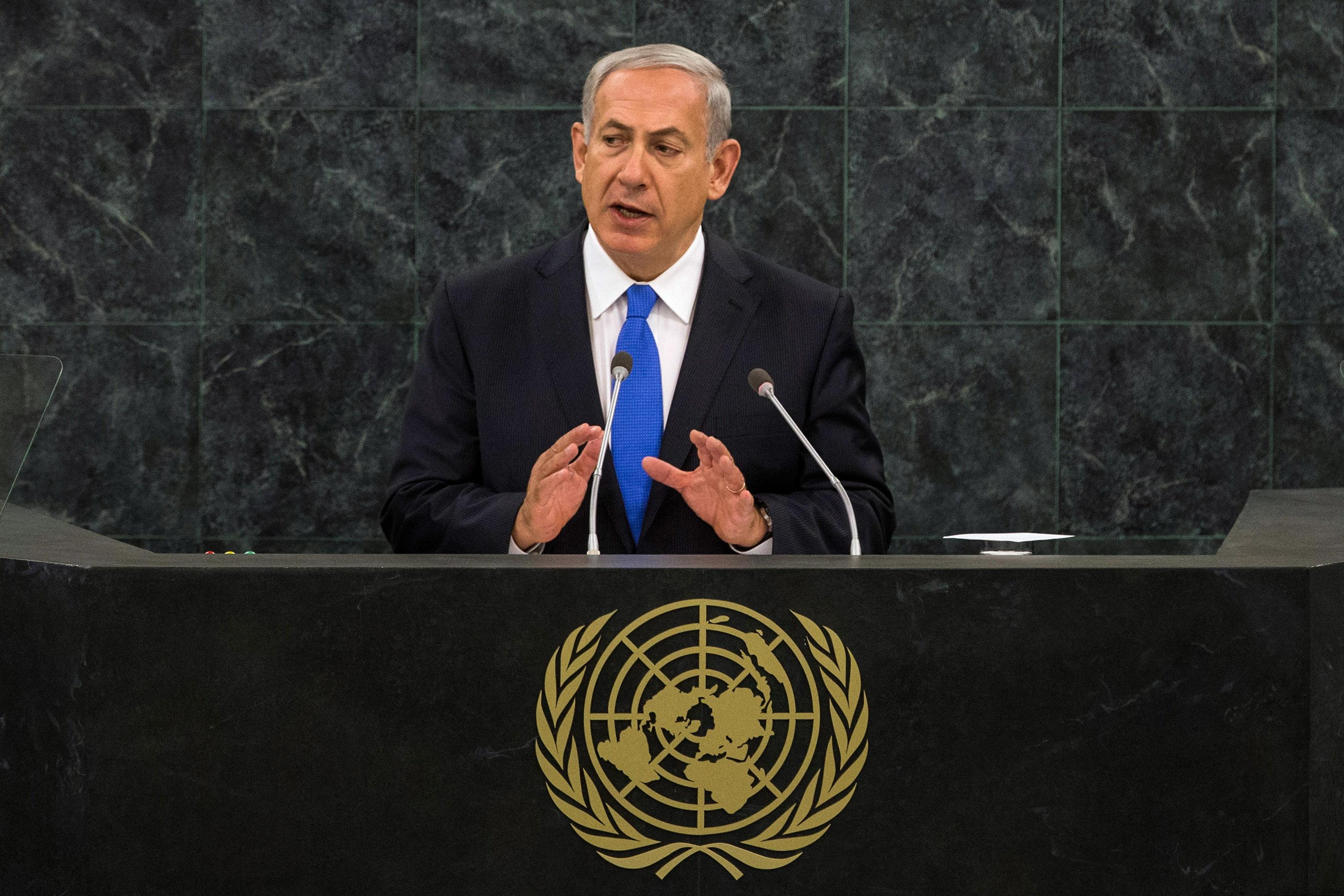A more-surprising-than-usual U.N. General Assembly came to a dramatic conclusion today with unusual back-to-back speeches from Israel and Iran.
As a number of Israeli commentators have pointed out, Prime Minister Benjamin Netanyahu can be an extremely effective speaker when responding to blatant antagonism from hostile governments, but his bellicose style is not really suited to responding to what he calls the“sweet talk and charm offensive” of new Iranian President Hassan Rouhani. (Israeli President Shimon Peres suggested this week that the prime minister had been too “scornful” in response to America and Iran’s recent contacts.)
Netanyahu warned President Barack Obama not to be taken in by Iran’s new softer tone in a meeting at the White House yesterday, and in today’s speech to the U.N. General Assembly—the final one on the schedule—he assured the delegates that “President Rouhani, like the presidents who came before him, is a loyal servant of the regime.”
If last year’s speech was best remembered for the cartoony bomb diagram Netanyahu held up on a notepad, this year’s version will probably be remembered for the line, “Rouhani thinks he can have his yellow cake and eat it too.” Around this time last year, Netanyahu warned that Iran was six months away from crossing the “red line” of acquiring enough uranium to build a nuclear bomb. This year he said Iran was currently “positioning itself to race across it.”
Netanyahu invoked the international community’s experience with North Korea, which also appeared on the brink of international breakthrough several times before it finally acquired nuclear weapons. He vowed that the only acceptable diplomatic solution was one in which Iran “fully dismantles nuclear weapons program” and promised that “if Israel is forced to stand alone, it will stand alone” to disarm its longtime foe. Paraphrasing Ronal Reagan’s famous dictum about the Soviet Union, he suggested a course of action of “distrust, dismantle, and verify,”
According to Haaretz correspondent Barak Ravid, most delegates in the room met the speech with silence.
After the prime minister spoke, the Iranian delegation invoked its right of reply to issue a rare direct response to the Israeli government. “I do not want to dignify such unfounded accusations with a response other than categorically rejecting them all,” the Iranian delegate said, asserting that “Iran has an inalienable right to peaceful nuclear energy” and warning that “Israel better not even think of attacking Iran, let alone plan it.”
In other words, the partial thaw in U.S.-Iranian relations appears to have little impact on Israeli-Iranian tensions, though an armed confrontation between the two countries does currently appear a lot less likely than it did when Netanyahu was drawing a line on a bomb one year ago.
